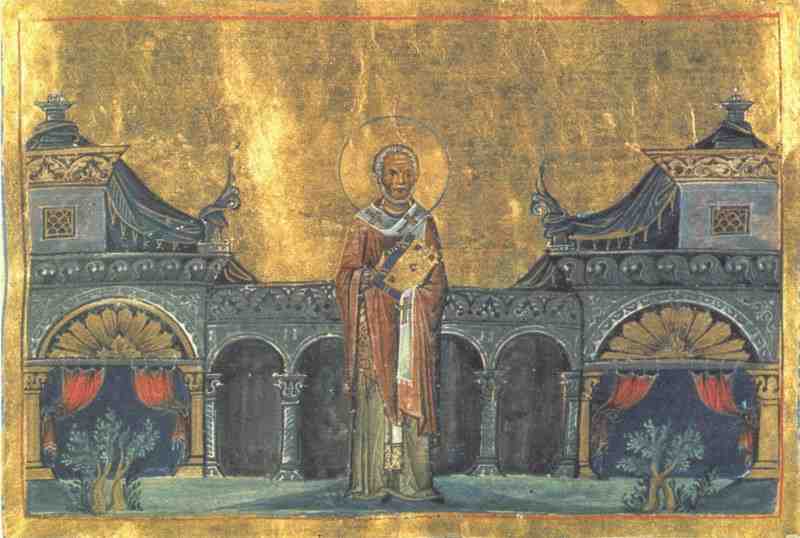The School of Alexandria and its Fathers (3)

In the previous two articles, we presented a general introduction about the theological school of Alexandria, its origins and mission, then we presented the biography of some of its famous fathers and theological teachers. In this article, we continue to introduce the rest of the great fathers of this school:
5- Pope Heraclas, the 13th Pope:
+ He was born to a pagan family, which later embraced Christianity.
+ His father sent him to the school of divinity where he demonstrated great ingenuity. He became a student and assistant for the scholar Origen, then succeeded him in leading the school.
+ Pope Demetrius the vinedresser ordained him a priest, and appointed him a director of the school and a preacher for the congregation. This was the cause for many pagans to join the faith.
+ He was an excellent teacher as well as a loving servant who served all with great love, so he was chosen as a Patriarch after St. Demetrius the vinedresser.
+ He went on a pastoral trip across Egypt during which he ordained 20 bishop to take care of the believers across all parts of the country. The congregation loved him so much that they wanted to distinguish him from the rest of the bishops, so they called him “Papa” in Coptic, which means the “father of the fathers”, thus , he became the first bishop in the history of Christianity to have that title [Pope], even 100 years before Rome used it.
+ He succeeded to attract the renegades, encouraged them to repent, and accepted them in the fellowship of the Church without re-baptizing them. During his time, persecution against the church was greatly increased, and he departed in peace after 16 years of leading the church.
6- St. Dionysius the 14th Pope:
+ He was born in Alexandria around 190 AD to pagan parent. In their religion, they worshiped the planets (Sabians). He studied medicine and became a successful physician.
+ His continuous readings lead him to accept the Christian faith. Once an old Christian woman sold him some manuscripts that contained parts of the epistles of St. Paul the Apostle. When he read them, they left a deep impression on him so he went back asking for more. She led him to the church and introduced him to the priest.
+ He was baptized and joined the school of Alexandria. Initially he was a student to Origen the scholar, then was ordained a deacon, later a priest, and a teacher in the theological school during the directorship of Heraclas. After Heraclas became the Pope of the see of St. Mark, he appointed him a director of the school.
+ After the departure of Pope Heraclas, he was ordained a Patriarch in 247 AD, Dachus Caesar stirred up persecution against Christianity and arrested the Pope. The congregation helped him escape from prison until the persecution subsided after Dachus’ death and Valerian succeeded him. The pope was exiled again during the time of Valarian. Despite the tribulations, he continued to teach the congregation and fight the heresies until he departed in peace.
+ He wrote many books and epistles in the areas of Dogma, Martyrdom, and eternity.
7- St. Didymus the blind:
+ He was born in Alexandria around 308 AD. He contracted an eye infection at the age of four and he lost his eyesight.
+ He taught himself the alphabet using engraved letters on wooden boards, centuries before Braille’s method. Thus, he learned grammar, philosophy, logic, mathematics, and music; He was the prodigy of his time.
+ He was a close friend to St. Anthony. On one of Anthony’s visits, he told him: “Didymus, don’t be sad because you lost your physical eyes, with which we see insects and other scenes, because God gave you angelic eyes with which you see the spiritual things and the divine light itself.” These words gave great comfort to Didymus and he remembered them all his life.
+ He loved Origen the Scholar and wrote in his defense and explained his writings saying: “ Those who accuse Origen of heresy do not understand, and are incapable of comprehending the elevated thinking and wisdom that this great and ingenious man is characterized with.”
+ Pope Athanasius appointed him a director of the school of Alexandria around 340 AD. He became a great teacher and many students flocked towards him from everywhere. His students gave him the title “The insightful Blind.”
+ He has many valuable writings and commentaries on the Holy Scriptures as well as a book about the Holy Spirit. He fervently fought the Arian teachings, and departed in peace around 396 AD.